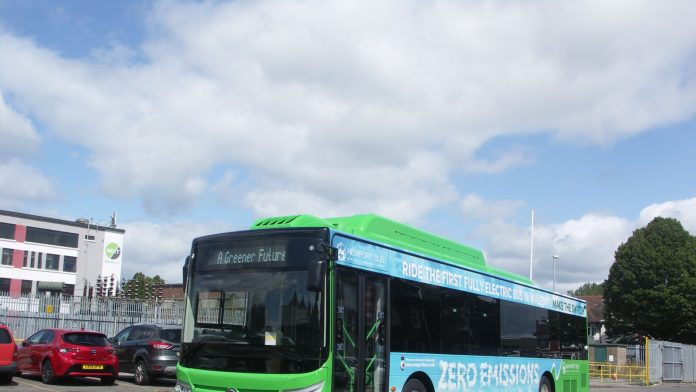New statistics from the Society of Motor Manufacturers and Traders (SMMT) show that investment in buses in the UK is continuing unabated, with zero emission buses making up a quarter of all new registrations.
The second quarter was the fifth consecutive quarter of growth in the number of new buses, coaches and minibuses hitting UK roads. The 1,826 new vehicles is a 61.7 per cent increase on last year’s second quarter.
The fact that there has been a steady year-on-year increase in demand since the start of 2023 is partly due to a rebound from the lack of investment during the pandemic, when demand was at historic lows, as well as government efforts to stimulate demand with incentives such as the bus fare increase subsidy.
Of the three vehicle types considered, demand for new minibuses increased by 97.2 per cent and new double-decker buses by 100.5 per cent, while single-decker buses were less in demand, growing by just 12.1 per cent.
New registrations of zero emission buses rose by a third (36.3 per cent) to 424 units in the quarter, making the UK the largest ZEV bus market by volume in Europe, followed by Italy, Germany and France.
The SMMT believes that because the transition to electric is somewhat easier for buses – they are based in depots and follow predictable routes – the bus fleet could reach net zero sooner than any other vehicle sector. However, it can be seen that it is not as easy for small and rural bus operators to finance the purchase of a new vehicle and the necessary infrastructure.
Mike Howes, SMMT chief executive, said:
A boost in uptake of new buses which provide mass mobility across the nation is also a boost for our economy and society, given the vital role these vehicles play – from commuting and staycations to transport for schools, charities and health and social care. At the same time, fleets continue to go green in rising numbers and, with suitably ambitious incentives and infrastructure is in place, buses and the communities which depend on them could be the UK’s first to reach net zero.
However, even the greenest diesel bus emits 1.3kg of carbon dioxide per kilometre, or around 104 tonnes per year.
